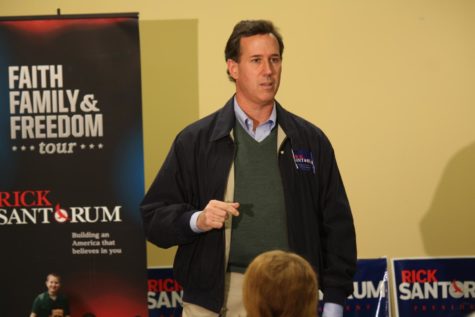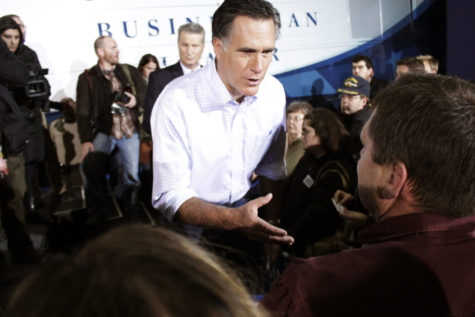Editorial: Ideological purity no answer to political failure
September 26, 2011
The quest for ideological purity among Republicans on issues that are of little contemporary importance continues. While the news last week that State Rep. Kim Pearson, R-Pleasant Hill, is recruiting more conservative candidates to challenge moderate Republicans should come as no surprise, it is distressing and disappointing.
All political parties have their own platforms and ideologies, but if Pearson wants to institute her own brand of conservatism as the norm among Republicans, she should do so by convincing the members of her party that that conservatism is the way to go, not by ousting candidates in primary elections.
We don’t need all our politicians to be of the same stripe. What we need is a set of individuals willing to compromise if the best idea put forward is not their own. We need politicians willing to admit their own faults after their faults have been demonstrated; we need them to defect to better ideas. In short, we need flip-flopping candidates.
The same people who decry governmental regulations on our economic lives apparently see no difference in regulating aspects of our social lives. Instead of removing barriers to trade and commerce, lowering taxes and deregulating industry, Pearson and other subscribers to Iowa’s social conservative brand of tea party focused on social issues such as prohibiting the state from paying for abortions in the case of rape and incest, criminalizing all abortions and removing laws forcing Iowans to apply to their sheriffs in order to carry a gun.
Those issues, aimed at creating a moral world, may be worth fighting for. But when thousands of people are out of work and the American, to say nothing of the Iowan, economy is in a state of fundamental transition if not decline, those social issues should take second billing on the program.
Trying to purify the Republican party by force of votes is no way to increase its attractiveness, either. For the past decade, it has been reviled as a supporter of big businesses’ corrupt practices, a starter of wars it cannot finish and a proponent of unpopular social issues huge numbers of people actually don’t care about.
The 2006 elections established those facts (recall Sen. Rick Santorum’s loss); the 2008 elections confirmed them (President Barack Obama won with large support from youths and small, individual donors); and the 2010 elections again demonstrated that “It’s the economy, stupid.”
If the GOP wants to be viable again, if it wants to be as popular among youths as it was in the days of Reagan, its classic and revered figurehead, it should concentrate on the political process. It ought to involve many varieties of people in its activities at all levels of government, not just the ones who agree with the party elites’ views. Big-tent conservatism isn’t a bad thing. And if it continues to disappear, we may find ourselves saying, along with President Reagan, that we didn’t leave our party. Our party left us.








